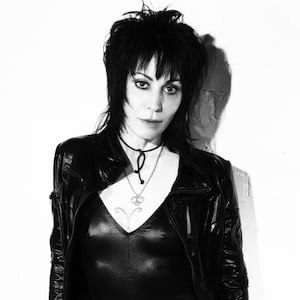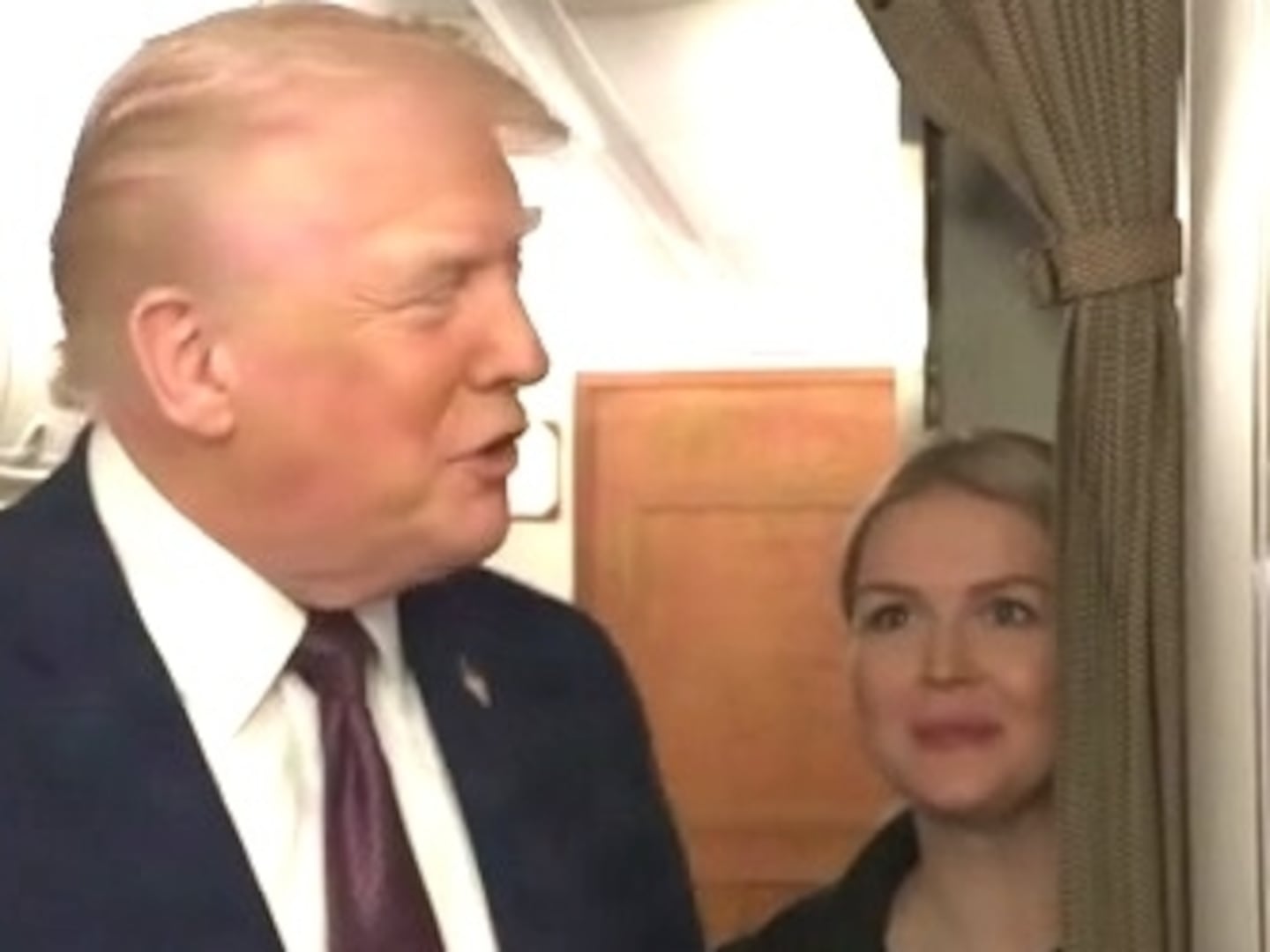The artist at the center of a controversy over using images of an alleged victim of assault, without seeking that person's consent, has apologized.
After an intense online backlash, artist Andrea Bowers released a statement to The Daily Beast which read, “I would like to apologize to the survivor whose image was included in my piece. I should have asked for her consent. She has asked that the panel including her photo be removed and I have honored that request.”
Bowers also claimed to have “reached out privately” to Helen Donahue, whose face had featured in the work. “I am very much looking forward to listening,” she wrote.
Bowers' installation is on display at the trade show Art Basel.
In “Open Secrets I & II,” Bowers chronicled around 200 men accused of sexual assault or harassment in the wake of #MeToo. The piece consists of panels with text about specific allegations are hung over a large red wall. Spectators are invited to read the stories while sitting on rolling chairs (an extremely literal nod to workplace misconduct).
According to Artnet, which first reported the photos have been removed, Bowers worked with 10 people over 2 years to research and create the installation.
As a press release for the piece explains, “Most statements are presented alongside a picture of the accused or other relevant imagery, and contextualized by a summary of events and perspectives.”
One “relevant image” in particular showed the bruised face and upper body of Donahue, a writer and digital marketing specialist.
In 2017, Donahue tweeted photos of alleged abuse by Michael Hafford, a freelance columnist who penned Vice and Broadly’s satirical “Male Feminist Here” page. After Donahue detailed her experience, three more women came forward with more accusations against Hafford ranging from sexual assault to rape. (In direct messages, reported by Jezebel in 2017, Hafford denied beating Donahue up and “apologizes for everything.”)
On June 11, Donahue tweeted a closeup photo of Bowers’ work. On the panel describing the claims against Hafford, Bowers included Donahue’s documentation of her bruises.
Donahue wrote, “cool that my fucking photos and trauma are heading art basel thx for exploiting us for “art” ANDREA BOWERS @unavailabl.”
“DO YOU KNOW HOW FUCKING INSANE IT IS TO FIND OUT MY BEAT UP FACE AND BODY ARE ON DISPLAY AS ART RN FOR RICH PPL TO GAWK AT THRU A STRANGER’S INSTAGRAM STORY,” the tweet went on.
The writer also posted a screenshot an Artnet story published in April, which dubbed the piece an “Epic Account of America’s Harassment Reckoning.” The publication estimated that “Open Secret I & II,” is on sale for $300,000.
Bowers, whose Twitter profile image finds her holding a sign that reads “Who Profits?,” was instantly accused of capitalizing on Donahue’s abuse. “I don’t consent to being a part of this & want it removed,” Donahue tweeted. (She did not respond to multiple requests for comment from The Daily Beast.)
Donahue’s posts ignited a social media firestorm. Jerry Saltz, senior art critic for New York magazine, also spoke out against the piece. Saltz tweeted: “To Andrea Bowers, Kreps Gallery, Gianni Jetzer: It is a *must*— imperative—that all the abused pictured in this work gave their *expressed permission* to use their image first—to the artist, the gallery & the curator. Otherwise this work needs to be removed at once & NFS. [not for sale].”
Many vented their anger in the comments section on an Instagram post by New York’s Andrew Kreps Gallery, which reps Bowers.
“Exploitation is now art? Shame on all of you,” wrote one commentator. “You’re profiting in one way or another off their trauma and abuse and you see nothing wrong with this???” another rhetorically asked.
Representatives for Andrew Kreps replied to the Instagram outcry in the comments section, writing falsely that “The images in the work solely depict the accused, not the survivors. Each individual print is based on publicly reported claims and the public response (printed in the font of the original source) of the accused. Sources are also cited on each individual print.”
Alex Fitzgerald, associate director of Andrew Kreps, told The Daily Beast in an email that the gallery’s initial, erroneous response “was based on the format of the majority of the prints, over 200 in total, that depict the accused.”
“That was incorrect, and the galleries have collectively apologized to the survivor,” Fitzgerald wrote.
Galleries involved with the piece—Andrew Kreps and Kaufmann Repetto in New York, Vielmetter in Los Angeles, and Capitain Petzel in Berlin—also apologized in a statement sent by Fitzgerald.
“The galleries stand by Andrea Bowers and her work and support the conversation that has only just begun,” it read.
Gianni Jetzer, who curates the festival’s “Unlimited” exhibition, did not return a request for comment. An Art Basel spokesperson sent the following statement to The Daily Beast on Wednesday afternoon.
“We feel that Andrea Bowers handled this regrettable situation thoughtfully—immediately removing the image as soon as it was requested and responding, in earnest, to the complaint. We support and stand behind the artist's decision to remove the panel and her heartfelt apology, and moreover, we believe that this decision was the artist’s to make.
“Our shows provide a platform for artists to express their perspectives on vital contemporary issues with artistic freedom and without censorship, and Art Basel chose the work for Unlimited because it engaged with a powerful issue that is highly relevant to the current moment. Artists engaging with politically charged topics must occasionally navigate difficult and unprecedented circumstances when the works are presented.”
When asked why she did not seek consent from Donahue in the first place, Bowers wrote, “The texts include the accused (or accused’s representative’s) public response. The remaining texts are written synopses of articles published in news journals such as The New York Times, The Daily Beast, Variety, Buzzfeed, Vox, and others.”
According to Fitzgerald, only Donahue’s images were removed from the piece. “The photographs of Helen were the only photographs of survivors included in the work,” he wrote.






